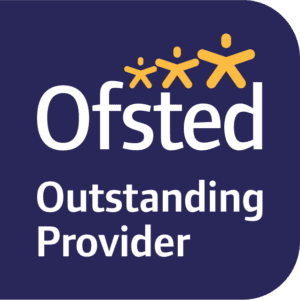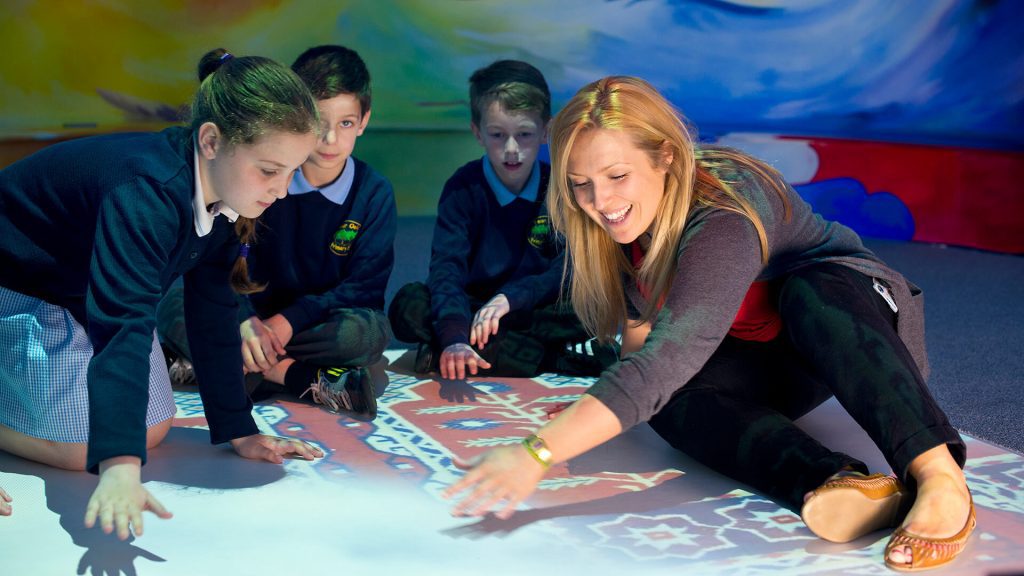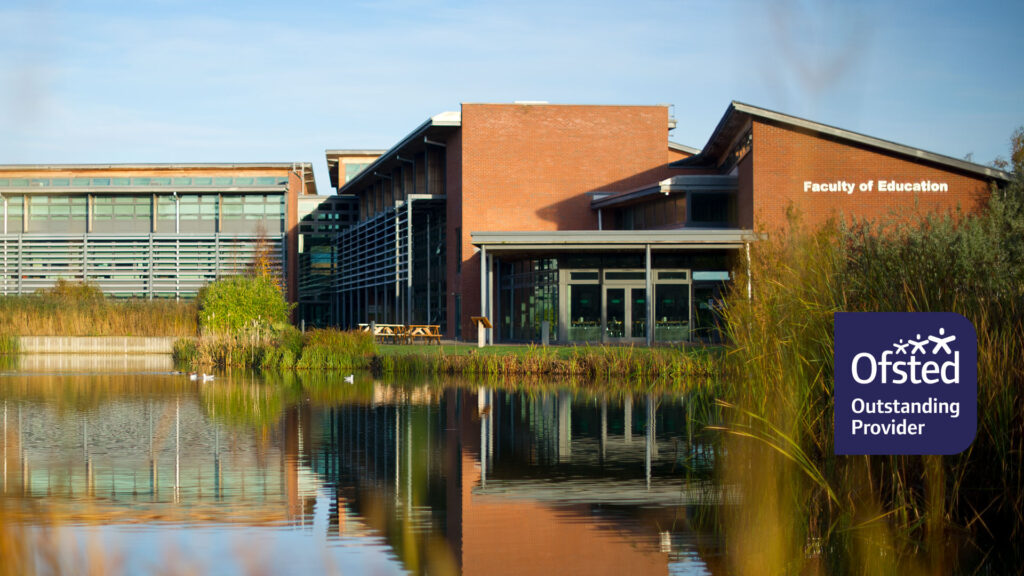Primary Education with QTS BA (Hons)
UCAS code: 0P59
Inspiring and nurturing young minds is one of the most rewarding careers you could have. Build your experience teaching children aged 5-11 and choose a focused subject to study. Gain recommendation for Qualified Teacher Status on our primary education degree.
Overview
| Course length: | 3 years full-time |
|---|---|
| Start dates: | September 2024 September 2025 |
| Location: | Edge Hill University |
| Example offers: | BBC-BBB (A Level) or DMM (BTEC) View full entry criteria |
| Subject(s): | Education and Teaching |
| Faculty: | Education |
| Department: | Primary and Childhood Education |

What will be your teaching style? How would you like to see the curriculum develop? What can you do to drive change in schools? On our BA (Hons) Primary Education with QTS degree, you’ll learn the essential skills you need to become a teacher, while looking at your work with a critical eye to keep improving.
There’s a strong focus on values and social justice throughout the course to help you learn how to change lives. Out on placement, you’ll work together with schools and their pupils to uncover solutions to challenges they might face.
Your time with us will not only shape you as an individual, but help you leave feeling confident you can make a difference to wider society, whatever career path in education you choose.
You’ll learn professional skills that will last your whole career as a teacher. You’ll look at different theories of education, examine the curriculum, explore your own choice of subject and carry out your own research project. As well as learning from your lecturers here at Edge Hill University, you’ll have opportunities to learn from experienced teachers in the schools you train at.
Successful completion of the BA (Hons) Primary Education with QTS degree leads to recommendation for Qualified Teacher Status (QTS).

Course features
-
Ofsted outstanding provider for Initial Teacher Education
-
International students can apply
-
Professional accreditation
-
Professional practice placements
What you'll study
- Studentship – we’ll help you develop the study skills you need to succeed at university and take ownership of your own academic development. You will develop and carry out your own small-scale, practice-based research project to see how research impacts education policy and in practice.
- Values in Education – you’ll consider the values that underpin primary education and consider historical, political and social influences. As you develop your own values as a professional teacher, you’ll begin to understand how these might influence your approach to teaching and to leadership in education.
- Professional Studies – you will spend a significant amount of time on professional practice placements in key stages 1 and 2 in schools and other educational settings. Academic modules that connect directly to your professional placements will support you in meeting the Teachers’ Standards.
- Curriculum – curriculum modules will help you develop essential knowledge across all subjects in the national curriculum for primary education. You’ll choose a subject specialism to explore in more depth and personalise your programme by selecting options for focused study. We’ll also explore wider issues such as creativity, working beyond the classroom, and curriculum design.
Year 1 of the BA (Hons) Primary Education with QTS degree will introduce you to the skills you need to succeed in your degree and later on in your career. You’ll begin learning about the curriculum subjects as well as exploring child development and different learning theories. You’ll go on your first school professional practice placement, seeing theories in action and linking your work to your studies.
By Year 2 we can start to look at more advanced skills like research and critical analysis. You’ll look at how different curriculum subjects fit together and why it’s important to look beyond the curriculum too. You’ll also go on a professional practice placement where you’ll start to think about inclusive education – its legal and ethical implications and how you can promote equality. We’ll also help you prepare for your future role and learn how you can develop leadership skills to drive change.
Year 3 includes a research project where you’ll review literature and form your own opinions on a topic. You’ll discover how you can influence the curriculum and be creative in your own teaching of it. You’ll go on your final professional practice placement where you’ll reflect on what you’ve learned and prepare for life as a teacher.
How you'll study
During the BA (Hons) Primary Education with QTS degree, your learning experience will include lectures, seminars, workshop sessions and tutorials delivered on campus, complemented by use of the virtual learning environment. Independent study will be supported by materials provided through the virtual learning environment using a range of online teaching tools and applications. Your university-based experiences will be underpinned by reference to current research with some modules giving you the opportunity to engage with your tutors’ current research interests and projects.
You will also undertake Intensive Training and Practice (ITAP) as a specific and focused element of our teacher training curriculum. This is designed to consolidate your knowledge for effective teaching, and enable you to rehearse and obtain feedback from experts on your practice. Our ITAPs are designed to utilise the latest research and technology as well as draw on the outstanding mentors, tutors, and teacher expertise from across the partnership.
You will spend a significant amount of time undertaking professional practice placements in key stages 1 and 2 in schools and other educational settings. During these experiences you will have opportunities to observe the work of expert practitioners. You will reflect on and discuss this practice with those practitioners and your trained school-based mentor. As you take on increasing responsibility for children’s learning and development, you will start by working with small groups under the direction of the class teacher, sometimes with a student teacher partner, and progress to planning for and working with the whole class for significant periods of time, managing the learning of every child.
How you'll be assessed
Assessment strategies will include submitting portfolios of school-based work, written assignments, in-class tests and audits, poster presentations, and group and individual oral presentations.
During professional practice your school-based mentor will assess your development through reflective conversations, reviewing and discussing your planning and assessment records, observing your teaching, and gathering the perspectives of other adults and the children who work with you.
In all cases, you will be given clear assessment guidance. The assessment criteria will be shared with you and you will be given constructive feedback to help you to set targets and identify actions to help you make further progress.
You will compile an electronic portfolio throughout your BA (Hons) Primary Education with QTS degree that builds to become a portfolio of evidence to demonstrate your professional development and your ability to meet the Teachers’ Standards.
There are no formal written examinations as part of the current assessment methods on this programme.
Who will be teaching you
The Faculty of Education has been at the forefront of teacher education for 135 years and today enjoys the enviable position of being one of the country’s leading providers of education, training and research for the children’s workforce.
You will be taught in University and on professional practice in schools by a range of highly qualified and experienced teachers and tutors who are dedicated to excellence in primary education and who will model high quality practice to enable you to develop your own teaching style.
You will be supported throughout your programme by a personal academic tutor who will help you to manage your workload, engage with your academic studies, prepare for professional practice placements and secure your first teaching post.
Entry criteria
Entry requirements
Typical offer 112-120 UCAS Tariff points, for which no specific subjects are required, plus GCSE English Language or English Literature, GCSE Mathematics and GCSE Science at Grade C or Grade 4 or above (or equivalent).
You are expected to have a commitment to, and understanding of, primary education, demonstrating the personal attributes, values and motivation required to train as a teacher.
An interview forms part of the selection process, which can be conducted online or face to face.
Please note, for the purposes of initial teacher training, level 2 literacy and numeracy qualifications are not considered as equivalent to GCSE Grade C or Grade 4 in English Language or English Literature and Mathematics.
If you accept a formal offer from Edge Hill University you will be required to meet the Department for Education’s standards for physical and mental fitness to teach and clearance to work with children. Further information, including a Declaration of Health questionnaire and details of how to apply for a Disclosure and Barring Service (DBS) Enhanced Disclosure will be sent to you after you have firmly accepted an offer.
Example offers
| Qualification | Requirement |
|---|---|
| A Level | BBC-BBB. |
| BTEC Extended Diploma (or combination of BTEC QCF qualifications) | Distinction, Merit, Merit (DMM). |
| T Level | Overall grade of Merit. |
| International Baccalaureate (IB) | We are happy to accept IB qualifications which achieve the required number of UCAS Tariff points. |
| Access to Higher Education Diploma | 45 credits at Level 3, for example 15 credits at Distinction and 30 credits at Merit or 24 credits at Distinction and 21 credits at Merit. The required total can be attained from various credit combinations. |
Please note, the above examples may differ from actual offers made. A combination of A Level and BTEC awards may also be accepted.
If you have a minimum of two A Levels (or equivalent), there is no maximum number of qualifications that we will accept UCAS points from. This includes additional qualifications such as Extended Project Qualification (EPQ), AS Levels that haven't been continued to A Level, and General Studies AS or A Level awards.
English language requirements
International students require IELTS 6.0, with a score no lower than 5.5 in each individual component, or an equivalent English language qualification.
If your current level of English is half a band, one band, or one-and-a-half bands lower, either overall or in one or two elements, you may want to consider our Pre-Sessional English course.
How to apply
Apply full-time
Read our guide to applying through UCAS to find out more about the application process.
International
Please see our international student pages for further information about how to apply as a prospective international student.
Should you accept an offer of a place to study with us and formally enrol as a student, you will be subject to the provisions of the regulations, rules, codes, conditions and policies which apply to our students. These are available at www.edgehill.ac.uk/studentterms.
If you join a full time undergraduate degree at Edge Hill University, we will guarantee you the offer of a room in our halls of residence for the first year of your course.
Discover our accommodation
Facilities
 Housed in a state-of-the-art £9million building, the Faculty of Education enjoys a stunning setting from both its lakeside and piazza buildings.
Housed in a state-of-the-art £9million building, the Faculty of Education enjoys a stunning setting from both its lakeside and piazza buildings.
Facilities in the lakeside building include a 300-seat lecture theatre, five well-equipped ICT suites, and 18 teaching rooms complete with the latest technology. The lakeside building is also home to a popular vegan and vegetarian cafe where students can meet to socialise and discuss their studies.
The nearby piazza building offers modern facilities including a lecture theatre and a number of seminar rooms.
Where you'll study
Faculty of Education
Finance
Tuition fees
UK Full-Time
£9,250
a year
International
£16,500
a year
EU/EEA and Swiss students who have settled or pre-settled status under the EU Settlement Scheme, as well as Irish nationals, may be eligible for the UK tuition fee rate.
Financial support
Subject to eligibility, UK students joining this course can apply for a Tuition Fee Loan from the Government to cover the full cost of tuition fees. UK students enrolling on the course may also be eligible to apply for additional funding to help with living costs.
Please view the relevant Money Matters guide for comprehensive information about the financial support available to eligible UK students.
EU/EEA and Swiss students who have settled or pre-settled status under the EU Settlement Scheme may be eligible to apply for financial support. Irish nationals can ordinarily apply to Student Universal Support Ireland (SUSI). If you are an EU student who does not have settled or pre-settled status, or are an international student from a non-EU country, please see our international student finance pages.
Your future career
This BA (Hons) Primary Education with QTS degree is accredited by the Department for Education. This means that successful completion of the course will enable you to gain recommendation for Qualified Teacher Status (QTS).
Before the end of your degree, you’ll complete a portfolio and a professional VIVA, providing a solid foundation to take with you into your two-year induction as an early career teacher.
Edge Hill’s graduates are working in schools across the UK and abroad. They have a great knowledge of the curriculum and a strong understanding of primary education for key stages 1 and 2. We’ll support you in your job search and when you’re finding your feet as a newly qualified teacher.
Course changes
Every effort has been made to ensure the accuracy of this information, however our courses are subject to ongoing review and development. Changing circumstances may necessitate alteration to, or the cancellation of, courses.
Changes may be necessary to comply with the requirements of professional bodies, revisions to subject benchmarks statements, to keep courses updated and contemporary, or as a result of student feedback. We reserve the right to make variations if we consider such action to be necessary or in the best interests of students.













